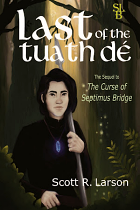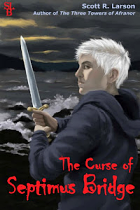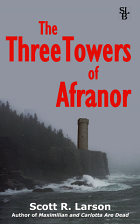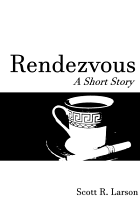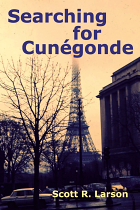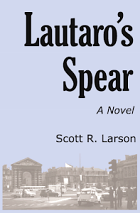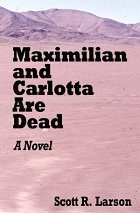Erin go Fleadh
We spent the week before last driving around Ulster. Part of it was about tracking down the house of the landlord reportedly killed by my ancestor in 1729 in County Donegal. But we also went to see the Titanic Exhibition at the site where the ship was built and launched a century ago in Belfast, as well as visiting the Giant’s Causeway on the north Antrim coast.
It turns out that driving around the North was good preparation for attending the Galway Film Fleadh. Of course, it shouldn’t be surprising that one would see a lot of Irish films at an Irish film festival or that a significant chunk of them might be based in Northern Ireland. But the thing is, when I go to the Fleadh, I don’t really pay much attention to what countries the films are from. I just pick the ones I want to see. I’m often trying to catch up with U.S. independent films that never got a proper release here or catching up on classics getting a rare showing on a big screen. And by the end of the week, I usually find that I’ve seen maybe two, three or four Irish films.
This year 14 of the 19 movies I saw were made in Ireland or at least were the result of Irish talent. Only two were from the U.S. (Bobcat Goldthwait’s God Bless America and Michael Cimino’s Heaven’s Gate, part of a tribute to the actor Isabelle Huppert). The other three (Nicolas Winding Refn’s Pusher, Ole Christian Madsen’s SuperClásico and Thomas Vinterberg’s Festen) were part of a strand of Danish films.
Clearly, there is a strong wave of Irish filmmaking going on. Much of this must be owed to the money spent by the Irish government (and also the governments of the UK and Northern Ireland) supporting filmmaking—something of a miracle given the dire financial situation these days in the republic. There is definitely a burst of talent and creativity on display here beyond any government incentives. Indeed, it was not unheard of to find that some of the films were self-financed. The technology is now such that it no longer takes a fortune to make a slick-looking flick.
A fair chunk of the new Irish films fall in the horror genre. Since this year’s Fleadh calendar included Friday the 13th, the festival had its own one-day horror strand, but quite apart from that many of the debuting Irish flicks were on the scary side. I didn’t see a lot of those (including Ciarán Foy’s popular Citadel, which tied with Alan Brennan’s Earthbound for the Best First Irish Feature award), but I did catch a couple of supernatural-themed features, Agnès Merlet’s Hideaways and John Carney’s The Rafters. Neither of those was what you would call a shocker, but they both skillfully exploited the mood and atmosphere found in Ireland’s more quiet corners.
As usual, there were some fine documentaries on offer. I saw Gentleman Prizefighter (about James J. Corbett), Natural Grace (winner of the Best Irish Feature Documentary award), The Reluctant Revolutionary (an Irish-UK co-production) and Men at Lunch (an intriguing study of an iconic New York photograph). But there seems to be an emerging sub-genre that I haven’t really taken note of before. It’s sort of a mockumentary, but that’s not the right word because that usually refers to comedies using the form of a documentary. I saw two films that gave every indication of being a standard straight documentary, and it only became apparent a good way through that they must have been scripted. One was Gerard Barrett’s very affecting Pilgrim Hill, about the sometimes grim life of the Irish bachelor farmer. I was completely certain it was a documentary until some interactions toward the middle section gave away the fact that we were watching actors. The other was Pat Collins’s Silence, which was kind of a quasi-documentary, as the subject/star sound engineer Eoghan Mac Giolla Bhríde was essentially playing himself or at least a version of himself. Incidentally, that film features some of the most stunning photography I have seen of Ireland (in this case the west coast from Clare to Donegal).
Three of the movies I saw were set in Northern Ireland. And this prompts a question I always have when I see a film based in the North: is it possible to make a movie set in Northern Ireland that is not about the Troubles? My experience has always been that, if it is possible, then it is at least not easy. Sometimes you get a movie like Cherrybomb that just wants to tell a story and doesn’t directly reference the province’s difficult history. But, at least in my perception, most N.I. flicks reference explicitly—or at least implicitly—the sectarian divide. But the three I saw last week present an interesting selection. James Marsh’s thriller Shadow Dancer (adapted by Tom Bradby from his novel) used the Troubles as a backdrop for suspenseful story of a woman forced to become an informer on the IRA—sort of the way the Cold War was used for endless spy potboilers. By contrast, Kieron J. Walsh’s Jump told a very modern story set in Derry. While the city’s history is not ignored (a couple of times we see the hand-painted words on a wall announcing the beginning of “Free Derry”), the story is completely self-contained. It is one of those entangled narratives about criminals and people in the wrong place, not unlike John Crowley’s Intermission.
The most popular film of the Fleadh (it won the Best Irish Feature award anyway) was Glenn Leyburn and Lisa Barros D’Sa’s Good Vibrations, which told the based-on-reality story of Terri Hooley. A son of a perennial Socialist candidate in Belfast, Hooley crossed the sectarian divide throughout the Troubles by bringing people together through love of punk music, by way of his legendary record shop (which gives the movie its title) and releasing records for local musicians—as well as for a Derry band called The Undertones. The real Terri Hooley was there for the screening, and it was amazing to realize that we were seeing this film in its entirety for the first time at the same time that he was. (His on-screen alter ego, Richard Dormer, who made a strong impression in this flick as well as in Jump, was not present because, we were told, he was filming for Game of Thrones.) Of all the movies I have seen about Northern Ireland, this one pulled off a neat trick. It’s the only one I can remember that dealt squarely with the Troubles but, without really making light of them, left its audience feeling uplifted and hopeful. Moreover, it was just plain fun.
I missed the Fleadh last year because of my high school reunion in California. After a year like this one, I won’t be inclined to miss it again.
-S.L., 17 July 2012
If you would like to respond to this commentary or to anything else on this web site, please send a message to feedback@scottsmovies.com. Messages sent to this address will be considered for publishing on the Feedback Page without attribution. (That means your name, email address or anything else that might identify you won’t be included.) Messages published will be at my discretion and subject to editing. But I promise not to leave something out just because it’s unflattering.
If you would like to send me a message but not have it considered for publishing, you can send it to scott@scottsmovies.com.















